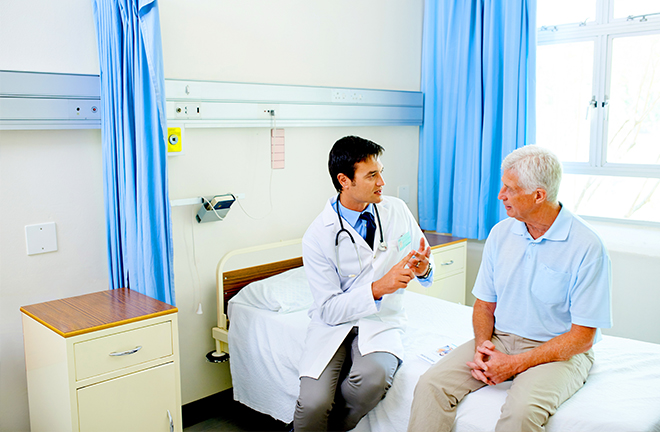Re-examining the ‘sick role’

A doctor offering advice to his patient Photo: peopleimages.com/TUCHONG
The “sick role” is a classic concept in medical sociology. In his 1951 book The Social System, American sociologist Talcott Parsons pointed out that the sick role implies that when a person falls ill through no fault of their own, they are assigned a new institutionalized role. This role entails: being absolved of responsibility for their condition, exemption from typical social obligations, an expectation to demonstrate a desire for recovery, and consequently, seeking assistance from healthcare professionals.
With the introduction of the sick role, diseases and medical treatment, which had been on the margins of sociological analysis, began to attract scholarly attention. As medical sociology continues to advance, however, the sick role has been questioned and revised by scholars.
First, many scholars have noted that the sick role is more applicable to acute diseases and lacks explanatory power for chronic and mental diseases. As the disease pattern shifts from infectious to chronic, interaction patterns in the doctor-patient relationship also change.
Second, the sick role varies across populations. Factors such as gender, age, race, class, and religious beliefs may influence how patients accept and assume the sick role.
Third, doctor-patient relationships characterized by Parsons involve expectations of mutual rights and obligations, with doctors typically holding great authority. However, with the intervention of state power and capital, the rise of consumerism, the flourishing of alternative medicine, and the emergence of the “digital patient” facilitated by the internet, the dominant position of doctors is weakening and patients are playing a more active role.
Fourth, the sick role carries inherent value assumptions. Parsons emphasized individual responsibility and the active efforts of patients to recover. This framework of rights and obligations is deeply embedded in the cultural values of White Anglo-Saxon Protestants and implies reciprocity. It suggests that the failure to assume one’s social role due to illness constitutes a disruption to social order and an economic loss, given the high cost of bringing a life into the secular world and raising it. Therefore, Parsons placed much emphasis on the “purity” of patients’ motives, meaning individuals are not merely getting sick to avoid responsibilities and obligations.
While the sick role can serve as a conceptual tool for understanding the experience of illness, medical practices, and doctor-patient relationships in China, its underlying ethics and values are quite distinct from Chinese traditions.
In Chinese society, patients often cannot directly ascertain their own condition. Family members’ decision to inform or not inform the patient actually serves the purpose of balancing family dynamics, individual interests, and family interests. While family members may seek medical advice on behalf of the patient and choose not to tell the patient about their conditions, the patient themselves may also intentionally conceal the true extent of their problems, considering that the disease and its treatment could affect the allocation of family resources and cause excessive concern for family members.
Families often provide substantial economic, emotional, and practical support for patients due to blood ties and emotional connections. These almost “infinite” moral obligations may impose enormous pressure on caregivers and invoke feelings of guilt on the part of patients. Many patients repeatedly question how they should confront the disease or even death, and seek meaning from their families. Some patients try to maintain close relationships with their families while deliberately distancing themselves from friends.
Arrangements for medical treatment and death also reflect how Chinese people base their considerations on family. Many patients and their families find themselves in a dilemma. Patients often experience feelings of self-blame, guilt, and even self-loathing because their treatment consumes massive amounts of money and other family resources. Family members are faced with a painful trade-off between the patient’s treatment and the long-term development of the family.
The above analysis indicates that Parsons’ sick role is not only inherently heterogeneous but also conceptually rooted in specific social values. When examining diseases and medical treatment in Chinese society, we should be aware that the family-oriented culture and family ethics still profoundly influence the thoughts and behavior of patients. As the social security system needs to be improved, family remains a “safe haven” for ordinary people in the face of various social risks such as diseases. In addition, an increasing number of studies find that family as a whole entails negotiation and compromise among individual members, as each member has their own interests and emotional demands. Such “family politics” forms the basis for understanding the Chinese sick role.
Yao Zelin is an associate professor in the School of Social Development at East China Normal University.
Edited by WANG YOURAN

 PRINT
PRINT CLOSE
CLOSE